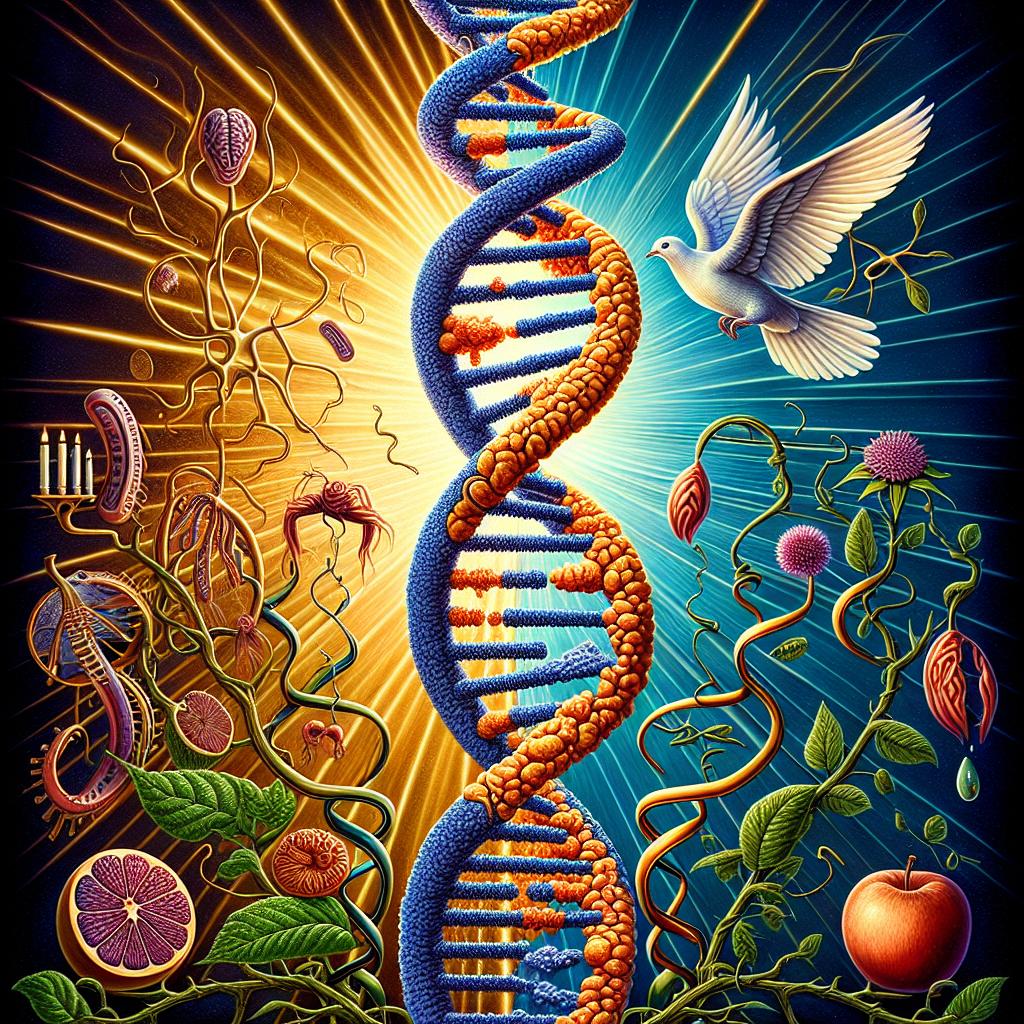
Sickle Cell Anemia Debunked: The Divine Truth Behind Human Design
Published: 21 June 2024
Does Sickle Cell Anemia Prove Evolution?
Sickle cell anemia is a genetic disorder that affects the structure of red blood cells. It is caused by a mutation in the hemoglobin gene, resulting in the production of abnormal hemoglobin molecules. This condition is most commonly found in populations from regions that have a high prevalence of malaria, such as parts of Africa.
The Limits of Science in Understanding Origins
When considering the relationship between sickle cell anemia and evolution, it is important to recognize the limitations of science in understanding origins. Nobel laureate Sir Peter Medawar stated that questions about origins go beyond the explanatory competence of science. Science can provide valuable insights into observable phenomena and explain processes within the natural world. However, when it comes to explaining the ultimate origins of life and complex organisms, science falls short.
The Complex Factors Behind Sickle Cell Anemia
While sickle cell anemia is often associated with malaria resistance, its distribution and prevalence involve a complex interaction of various factors. These factors include viral infections, dietary habits, social factors, and even marriage customs that can lead to in-breeding.
It is crucial to consider these additional factors when analyzing the prevalence of sickle cell anemia. Western population geneticists often assume random mating, but African anthropogenetics cannot ignore the impact of cultural practices and social habits on genetic diversity.
Overlooking Sociological Factors
Some hypotheses put forward by anthropologists and theoretical geneticists may overlook sociological factors when explaining the prevalence of certain genetic traits. For example, studies have shown a higher frequency of stuttering in individuals with the sickle cell trait. However, this association is not necessarily linked to malaria resistance or natural selection.
In Ghana, where stuttering is prevalent, there is a social disadvantage associated with being left-handed. Left-handed individuals are often subjected to ridicule and forced to perform tasks with their non-dominant hand. This constant state of agitation can contribute to the development of stuttering.
Furthermore, the desire to excel against all odds may lead to a higher number of left-handed individuals in academic institutions. In regions with a higher prevalence of sickle cell anemia, it is not surprising that some individuals with the sickle cell trait also have a tendency to stutter. This association is more influenced by sociological factors than by natural selection.
A Biblical Perspective on Origins
As Christians, we believe that God is the creator of all things. The Bible teaches us that God created the heavens and the earth, as well as every living creature according to their kinds (Genesis 1:1-25). This perspective aligns with the belief that each organism was created with its unique characteristics and purpose.
When considering genetic disorders like sickle cell anemia, it is important to remember that we live in a fallen world. The presence of genetic mutations and disorders is a result of the brokenness introduced by sin. It is not evidence for evolution but rather a reminder of the effects of sin and the need for redemption.
Understanding Genetic Diversity
God's creation is marked by incredible diversity. He designed organisms with the ability to adapt and survive in different environments. Genetic diversity allows populations to have a range of traits that can be advantageous or disadvantageous depending on the circumstances.
While sickle cell anemia may confer some level of malaria resistance, it is important to recognize that this mutation also comes with severe health consequences. It serves as a reminder that living in a fallen world means dealing with imperfections and challenges.
Genetic Mutations and God's Design
Genetic mutations are often seen as errors or defects, but from a biblical perspective, they can also be understood as part of God's intricate design. While some mutations result in harmful conditions, others can provide individuals with unique traits or even advantages in certain situations.
It is important to approach discussions about genetic mutations with humility and respect for God's sovereignty. As Christians, we trust that God has a purpose for everything, including genetic variations and disorders.
Caring for Individuals with Sickle Cell Anemia
As followers of Christ, we are called to love and care for those who are suffering. Individuals with sickle cell anemia face unique challenges and require support and understanding.
In practical terms, this means advocating for improved healthcare, promoting awareness and education about sickle cell anemia, and providing emotional and spiritual support to individuals and families affected by this condition.
It is also essential to foster a community that values inclusivity and rejects stigmatization or discrimination against individuals with genetic disorders. By showing compassion and understanding, we can reflect God's love to those who are affected by sickle cell anemia and other genetic conditions. Sickle cell anemia does not prove evolution. While this genetic disorder may provide some level of resistance to malaria, its prevalence is influenced by a complex interplay of factors such as viral infections, dietary habits, social practices, and even marriage customs.
As Christians, we approach the topic of genetic disorders from a biblical perspective. We recognize that God is the ultimate creator and that genetic mutations are part of His design. Understanding the limitations of science in explaining origins allows us to appreciate the complexity of God's creation.
Our response to sickle cell anemia should be one of compassion and support for individuals affected by this condition. By demonstrating love and care, we can reflect the character of Christ and bring hope to those who face the challenges associated with sickle cell anemia.
